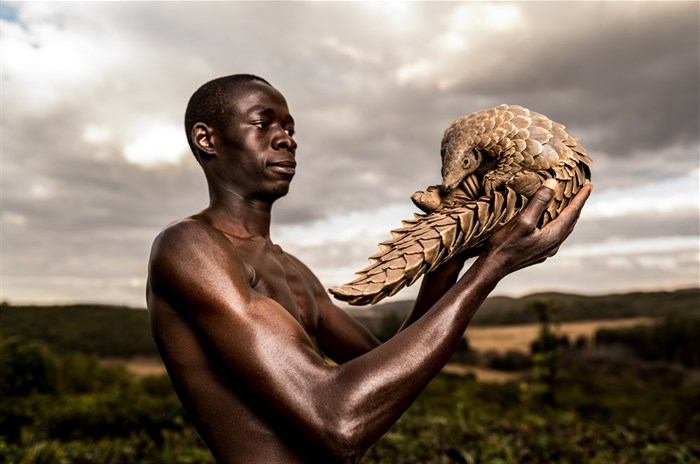Trending




 Sabre EMEA 2024 Awards: Razor PR, Retroviral top SA agenciesDanette Breitenbach
Sabre EMEA 2024 Awards: Razor PR, Retroviral top SA agenciesDanette Breitenbach
Elections 2024
What pangolins taught us: We are all conservationists

It may have started with a bat. But the origins of the novel coronavirus that came to be known as Covid-19 remain a mystery, for now. A conspiracy that it spread from a lab was floated, but discredited. All seven previous coronaviruses in humans originated from animals – this one probably did too. Bats are reservoirs of viruses, and may have spread the coronavirus through another animal, an intermediate host, before it reached humans. One creature in particular was suggested – the world’s most trafficked mammal, the pangolin.
The link is inconclusive. But in the wake of Covid-19, desperately needed action has been taken to stop the poaching of pangolins for their meat and scales. After years of decimating this creature’s population, the possibility that they could in fact kill us has led to increased pressure to protect them.
We have poached pangolins to the point that 2020 may have been the first time many had even heard of them. The pandemic was a wake-up call that our disjointed relationship with nature has catastrophic consequences. But it has brought the issue of wildlife trafficking to the fore, and made clear that we all have a role to play in conservation. Pangolins are said to be a sign of good luck – and the preservation of this species could mean the survival of our own.
The plight of pangolins
Little is known about pangolins. They are solitary and nocturnal, making research difficult. But here is what we do know:
- Pangolins play an important role in the ecosystem as pest controllers
- They are the only scaled mammal, with their keratin scales believed to have healing properties
- There are eight species of pangolin – four in Asia and four in Africa. All are at risk of extinction
- When threatened, they roll into a protective ball, making them easy to be picked up by a poacher
- An estimated one million pangolins have been poached since 2000
The high demand for pangolin meat and scales has driven a global market undeterred by international bans on the trade. In both Africa and Asia, they are used in traditional medicine, although there is no scientific evidence to back up the claims of healing properties. Pangolin meat is seen as a delicacy and a symbol of wealth in China and Vietnam in particular.
The market for pangolins in China led to a plummet in populations. Three of the Asian species are now critically endangered. This has fuelled the global trade, with pangolins and pangolin parts being illegally transported from West and Central Africa – often as frozen bodies or bags of scales, remnants of a creature that once was.
A global wake-up call
Despite a ban by CITES on the commercial trade of pangolins in 2016, trafficking continued at an unprecedented pace. Last year was a turning point. The outbreak of Covid-19 led to a ban on wildlife trade and consumption in China, and the government granted pangolins the highest level of protection. Pangolin scales were also removed from the list of ingredients for traditional medicines. However, some patented medications still contain pangolin scales, leaving a loophole that can easily be exploited by organised crime syndicates.
Yet these steps so far are a promising start to remedying our own destruction. Changing attitudes towards pangolins will play a crucial role in curbing demand and there is growing awareness. Early on in the Covid-19 outbreak, a questionnaire among 100,000 Chinese residents found that 90% of respondents supported a ban on wildlife trade for both meat and medicine. Educational campaigns in countries like Malaysia have led to increased community involvement in conserving the species. In Zimbabwe, where pangolins are seen as a sign of luck, chiefs have made a concerted effort to revive traditional beliefs and instil respect for the pangolin in communities.
Hope on the horizon
While pangolins have poor survival rates in captivity, efforts to return them to the wild are seeing extraordinary success. In South Africa, conservationists are hard at work reversing the damage inflicted on this species. Pangolins rescued from the illegal trade are extremely difficult to rehabilitate and are often dehydrated, emaciated, and traumatised. But a joint effort by the Johannesburg Wildlife Veterinary Hospital, African Pangolin Working Group, and Humane Society International has seen the return of Temminck’s pangolins to KwaZulu-Natal. Once ecologically extinct in the region, pangolins are making a comeback at Phinda Private Nature Reserve. Through an intensive soft-release programme, a handful of rescued pangolins are now living in the wild here. In December 2020, news arrived that conservationists had long hoped for – a pangolin pup was born, the first one in decades.
This may seem like minimal progress in comparison to the carnage wrought by the illegal trade. But every individual action counts. We can all play a part in conservation if we learn to look beyond ourselves and recognise that we are interdependent. Whether by sharing information about pangolins on social media, or donating to the organisations researching and protecting the species, we can each take an active stance against the continual poaching of pangolins. Their plight has taught us a lesson: that we are all conservationists. If we can turn the tide for pangolins, we can change the prospects of countless other endangered species, as well as ourselves. This is our window of opportunity to rectify our relationship with the natural world. Perhaps in the future you may just see a pangolin in the wild – and that will be a lucky day indeed.











